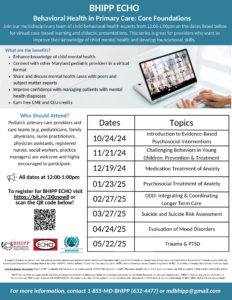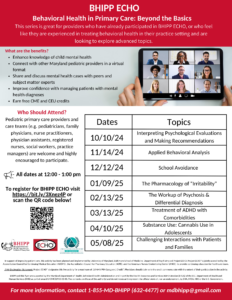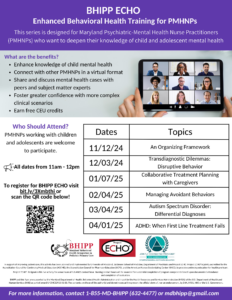About BHIPP ECHO™
BHIPP ECHO is a web-based learning collaborative that is built on the “hub and spokes” design know as the Extension for Community Healthcare Outcomes (ECHO) model.
BHIPP ECHO sessions connect BHIPP consultants with community pediatric providers to provide didactic presentations and case-based learning through real-time online learning sessions. Participants join ECHO sessions from their own desktop or mobile devices using free videoconferencing software. The goal of BHIPP ECHO sessions is to improve providers’ knowledge of mental health screening, evaluation, and in-office interventions, with an emphasis on both non-pharmacological and pharmacological treatments.
BHIPP ECHO™ sessions are held monthly and include:
- Case-based learning in which participating providers present de-identified cases (submitted in advance) for discussion with peers and a multi-disciplinary team of behavioral health experts.
- A 15-20 minute didactic lecture on a specific behavioral health topic relevant to primary care.
CME and CEU credit is offered at no cost to participating providers.



